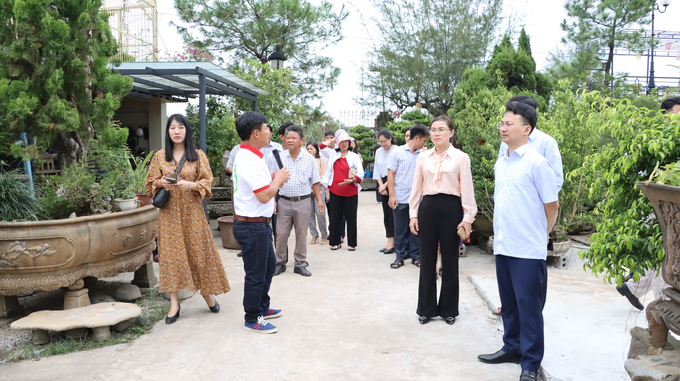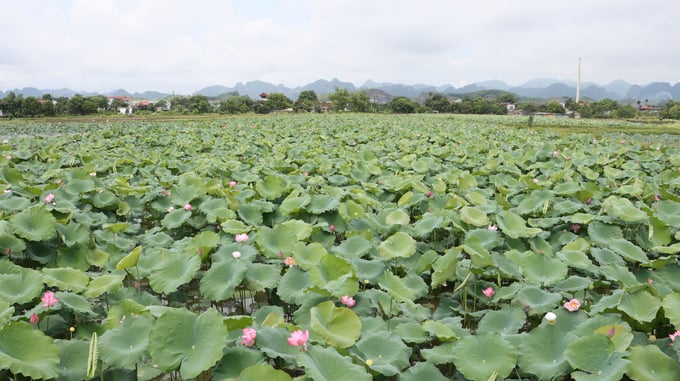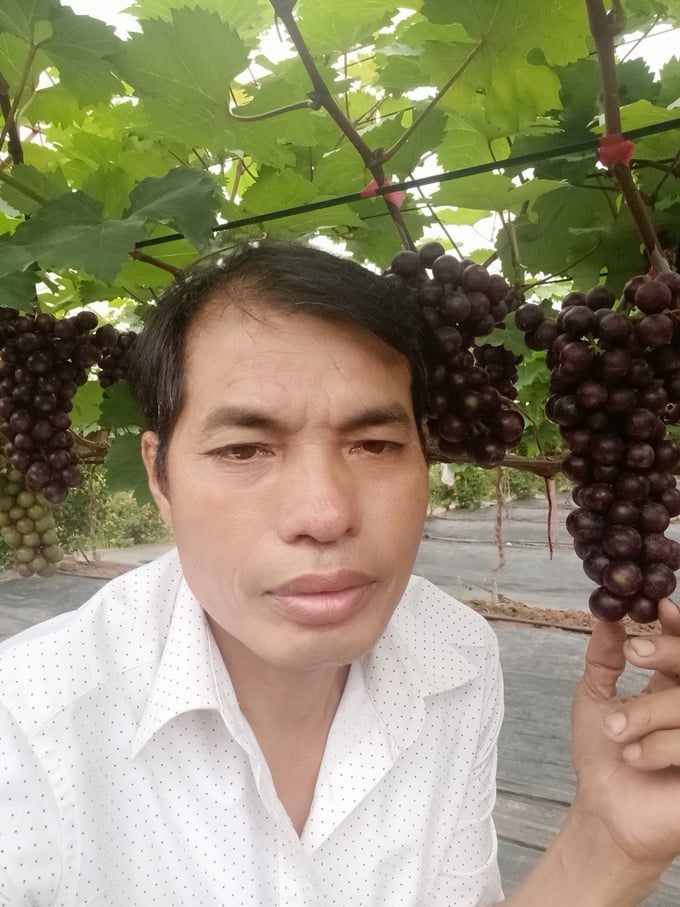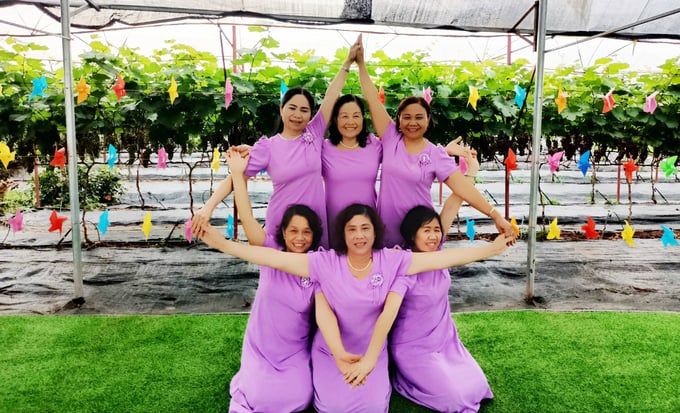May 20, 2025 | 04:21 GMT +7
May 20, 2025 | 04:21 GMT +7
Hotline: 0913.378.918
May 20, 2025 | 04:21 GMT +7
Hotline: 0913.378.918
Hanoi has had the first 2 OCOP products evaluated and ranked 4 stars in the group of community tourism services, eco-tourism, and tourist attractions, including Hong Van village service tourist destination (commune Hong Van, Thuong Tin district) and Phu Dong Green Park ecological area (Phu Dong commune, Gia Lam district).
In addition, Hanoi also recognizes 5 city-level tourist destinations in suburban areas associated with agricultural, rural, craft village, and ecological tourism, including tourist destinations in Duong Xa commune, Gia Lam district; Hoang Long ecological site, Thach That district; tourist destination of Thuy Ung horn comb craft village, Thuong Tin district; Van Diem high-end carpentry village tourist destination, Thuong Tin district; tourist destination in Long Ho village, Kim Son commune, Son Tay town.
Thuong Tin district is a pioneer in shifting from pure agricultural production to agricultural development associated with eco-tourism and craft villages. Taking advantage of a commune along the Red River with a tradition of growing flowers and ornamental plants, Hong Van has created a highlight in tourism with its unique landscape and environment.

Visit the bonsai sector in Hong Van commune.
The commune also built nearly 20 models of eco-tourism and agricultural tourism combined with experiential services. The people and the government restore and embellish cultural works and historical relics. Movements to build bright, green, clean, and beautiful spaces and the image of civilized, friendly, and hospitable Hong Van people have been implemented and responded to by the government and people. Thanks to that, the number of visitors is increasing, reaching 15,000-20,000 turns each year, helping to maintain and create stable jobs for hundreds of workers with an income of VND 6-8 million/person/month.
For peri-urban areas, agricultural development, in addition to economic development and improving the quality of life for people in rural areas, also has the critical task of ensuring the proportion of green trees and air conditioning for urban areas. Inner-city areas are rapidly urbanizing. Therefore, the development of tourism associated with nature and Hong Van's craft villages is remarkable. The recent Resolution of the Commune Party Committee expressed its determination to strive by 2025 Hong Van to become a center connecting key regions and an attractive tourist destination of the Capital.

Hanoi has many lotus lakes but does not know how to exploit them effectively for tourism.
If Hanoi has many agricultural tourism models invested in by businesses or outsiders, the model of Mr. Nguyen Huu Hoi in Doai village, Dan Phuong commune, Dan Phuong district is rarely entirely created by farmers develop themselves. Here, the young agricultural tourism industry has typical strengths and weaknesses. Currently, the total area of his farm is 4 hectares, of which part is planted with Ha Den grapes.
Every year, there are two grape harvests in May and November of the lunar calendar. Each crop lasts about 20 days. Every day, he welcomes, on average, from a few dozen to a hundred guests. Adult tickets are VND 30,000 VND/turn, children's tickets are VND 20,000/turn, and the facility earns about tens of millions annually. But, the farm's primary source of income is still from selling grapes. 1,500 Ha Den grapes tree yield an average of 3.5-4 tons/crop, with a selling price of VND 150,000/kg at the garden. Last year, he earned over VND 500 million in revenue, a profit of VND 300 million. There was a lot of rain this year, and the grape crop failed. He only earned more than VND 300 million, a profit of VND 200 million.

Mr. Hoi is a pioneer in growing Ha Den grapes and doing agricultural tourism.
Currently, Hanoi city plans to assign districts to pilot agricultural tourism, but it is also challenging. Mrs. Vu Thi Huong - Director of Hanoi Agricultural Extension Center, commented: Most groups, cooperatives, or farming households doing agricultural tourism have not been adequately trained and do not know how to propagate and introduce to tourists. To meet customers' needs, some establishment owners are forced to build projects on agricultural land that turn out to be violations.
If agricultural tourism wants to attract visitors for the first, second, or third time, it is not simply a safe production model. Still, it must coordinate many activities to synchronize into one area. For example, Hong Van Cooperative of Thuong Tin district has a large enough space for visitors to experience many activities such as vegetable production, fish ponds, ornamental flowers, and plants; booths introduce the cooperative's products or other local OCOP products.

Tourists come to take photos and experience Mr. Hoi's vineyard.
Hanoi has many beautiful lotus growing areas, but propaganda and promotion are still limited because producers only know how to produce, have not been trained in marketing, and do not know how to exploit agricultural products from a multi-value perspective. Growing lotus not only collects flowers and sepals but also leaves to make tea and lotus roots into attractive dishes for visitors to visit, take photos, and enjoy.
Currently, agricultural models associated with tourism are still spontaneous and quite fragmented, not commensurate with Hanoi's potential and strengths. The main reason is that the development of agricultural tourism is not linked to rural planning, and the adjustment of planning also has many problems. The land management mechanism for agriculture and rural areas is still not in tune with life's needs. Current policies to attract investment in ecological agriculture are not close to reality...
Translated by Tuan Huy

(VAN) This was the assessment shared by experts at the workshop titled 'Assessing the Role and Potential of Low-Emission Rice Production Systems in Vietnam,' held on the morning of May 19.

(VAN) Cai Rong Port is the fisheries control center of Quang Ninh, helping to monitor fishing vessels, combat IUU fishing, and remove the EC's 'yellow card'.

(VAN) The German Agricultural Society (DLG) explores the possibility of establishing a mechanization service center in Vietnam’s Mekong Delta to support farmers in accessing and utilizing advanced machinery.

(VAN) On May 16, the Department of Water Resources Management, in collaboration with the Food and Agriculture Organization of the United Nations (FAO), held a signing ceremony for the GEF-8 project document.

(VAN) Food safety, mechanization, vocational training, and market opening are key areas of cooperation expected between the Vietnamese Government and the Federal Republic of Germany.

(VAN) Deputy Minister Nguyen Quoc Tri also expressed his hope that Cuba will soon overcome its current challenges, attain food security, and further expand cooperation with Vietnam.

(VAN) The project contributes to enhancing the resilience of communities vulnerable to the impacts of climate change, with a primary focus on local women.